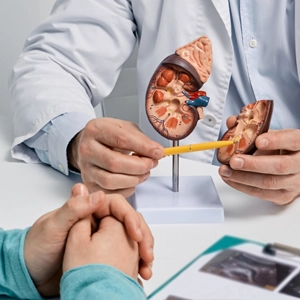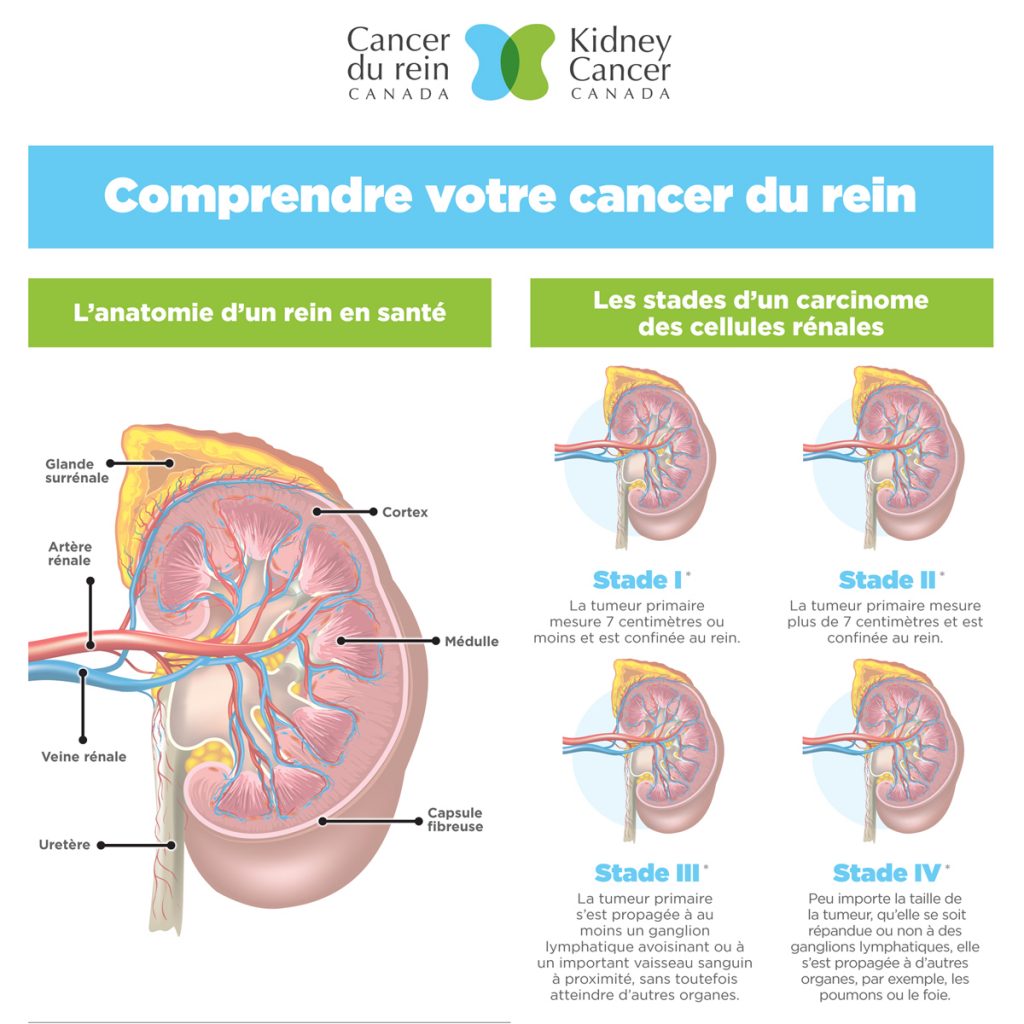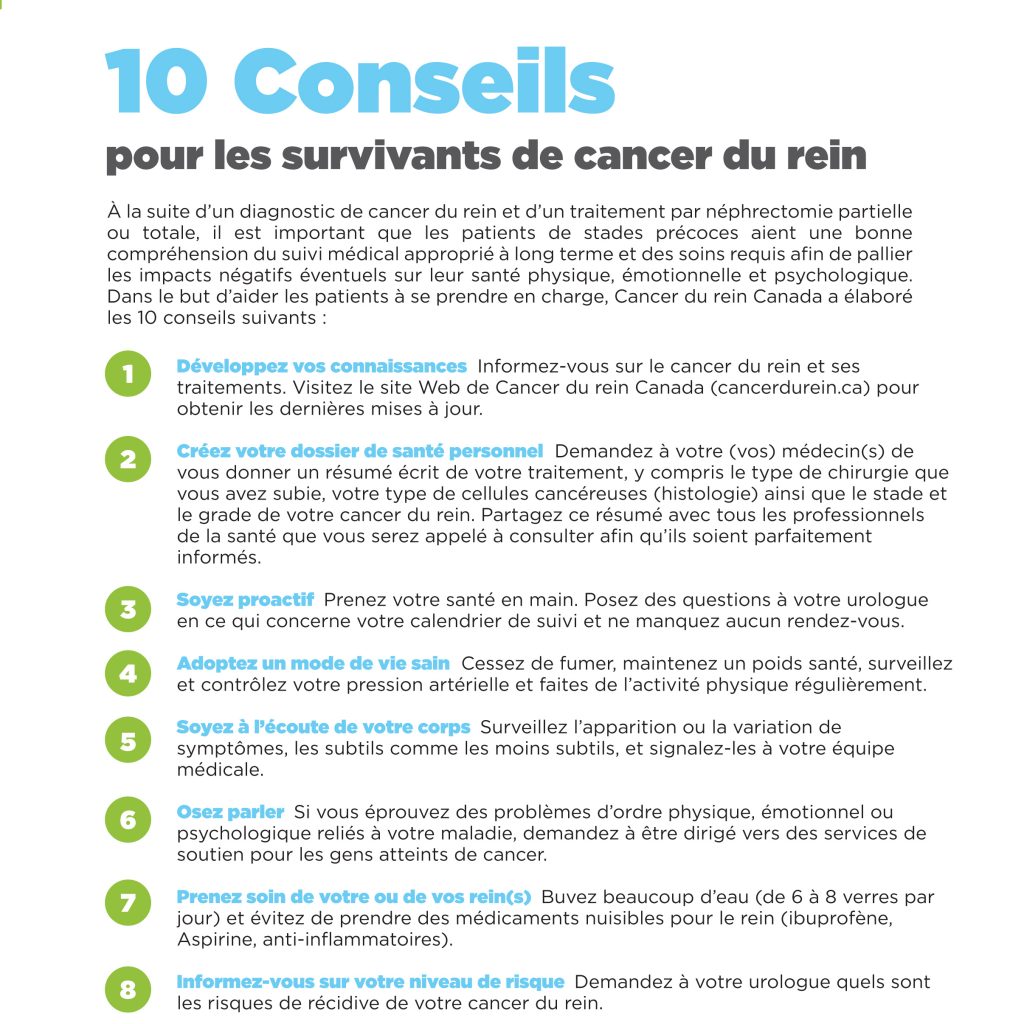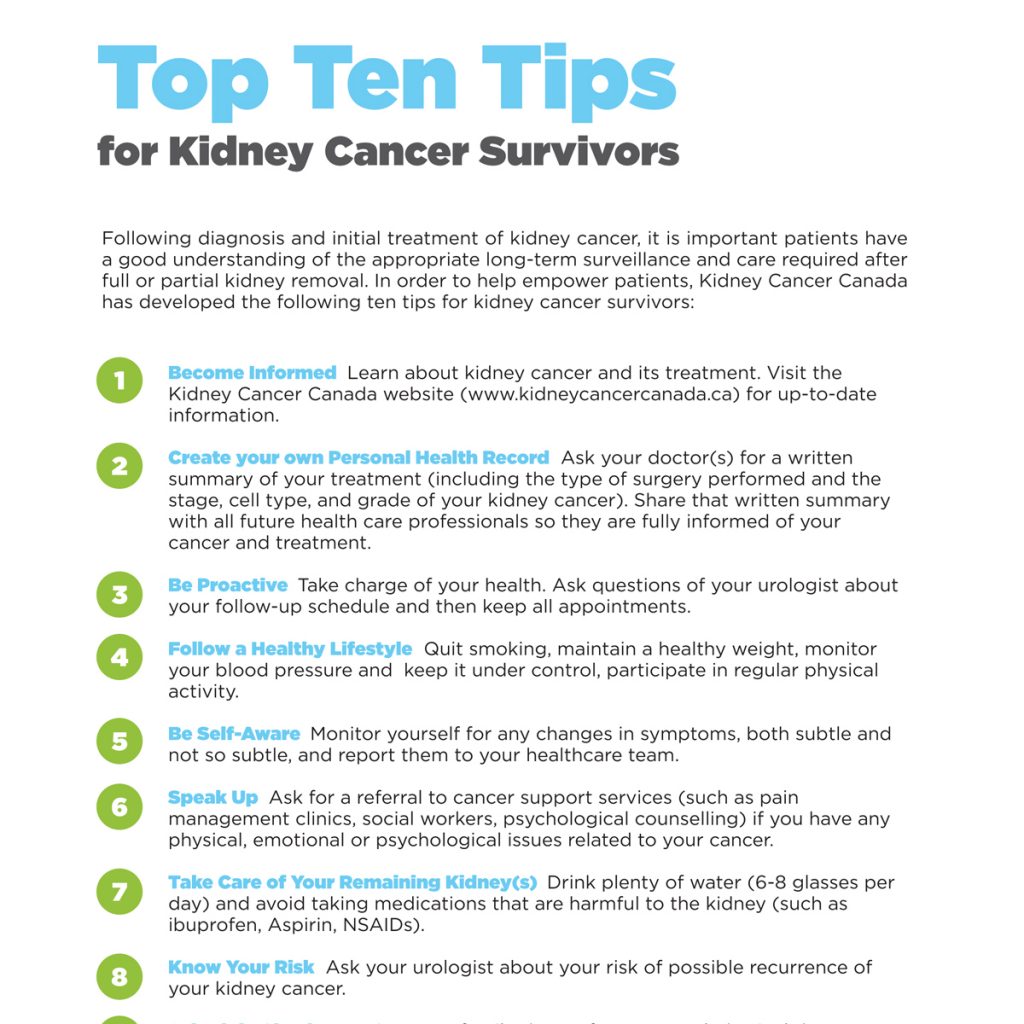Immuno-oncology (IO) therapy drugs work with your immune system or activates it, to attack your kidney cancer.
IO therapy is not like other cancer treatments. It is not chemotherapy and it is not like targeted therapy. The main side effects of immuno-oncology therapy occur because the immune system is too active and attacks normal tissues of your body. These side effects mimic other illnesses where the immune system is too active; called autoimmune diseases. The side effects of immune therapy depend upon the particular type of drug (such as a checkpoint inhibitor), or combination of drugs you may be taking and how you respond.
The side effects of immuno-oncology treatments are very different from those of other kidney cancer treatments, because immune therapy works differently from other therapies. How these side effects are managed can be different from that of other therapies for treating kidney cancer. It is important to understand what immuno-oncology side effects you may have from your treatment and what to do about them.
The side effects of IO therapy can start as mild issues and worsen very quickly. Even if your side effects are only mild, you must contact your doctor as soon as possible.
It is unclear if IO therapy permanently changes your immune system, but the treatment continues to influence your immune system even after you stop receiving it. Side effects of IO therapy can also develop over time, sometimes a long time after starting treatment, or even months after finishing treatment. Always remind your healthcare team that you have taken or are taking IO therapy.
WHAT CAN YOU DO
You should promptly report ALL side effects that you have to your oncology team. This applies even long after you have taken your pill or had your infusion. Something that might appear quite mild at first (such as diarrhea) can quickly become something very serious if it is an immune-related side effect. Do not hesitate to call your doctor, do it right away. It is far better to call the doctor for something that may be unrelated, rather than waiting to call even for a day. In some cases, a short course of steroids may be necessary and then you can restart your treatment. Getting prompt treatment for any side effect may prevent serious side effects from becoming permanent.
It can be very helpful to keep a diary of side effects and do not hesitate to make a phone call to your doctor or nurse as soon as something becomes noticeable. Even one day of delaying to report a side effect could result in you needing to be hospitalized and more serious interventions may be required.
Many kidney cancer patients carry a card in their wallet that lists the name of the immuno-oncology therapy drug they are taking or have taken.
WHAT YOUR DOCTOR CAN DO
Depending on how bad the side effect is, your doctor will decide how severe the side effect is and whether your treatment may need to
- be delayed for a time,
- have the dose or schedule adjusted,
- be stopped.
Sometimes you may need to take drugs called steroids (corticosteroids such as prednisone, prednisolone, dexamethasone) to help suppress your immune system. This may be referred to as immunosuppressive therapy.
The most common side effects of immuno-oncology therapy drugs are listed below:
The immuno-oncology side effects listed here give a general overview of the symptoms and what your doctor can do. Please refer to ‘Managing side effects‘ for more details on what you can do, what you can avoid and possible doctor strategies for the specific side effect you are experiencing.
FATIGUE OR JUST “NOT FEELING WELL”
Fatigue is a very common side effect of immuno-oncology therapy drugs. It is important that you report a “feeling of being unwell” as soon as you notice it or if a previously reported side effect becomes worse.
Your doctor may order blood tests or other tests to find out what is causing your fatigue.
RASH AND OTHER SKIN-RELATED SIDE EFFECTS
This may be a symptom of inflammation of the skin. For some medications (such as CTLA-4 inhibitors like ipilimumab/Yervoy®), skin reactions may first occur 2-3 weeks after the first dose is given. Inflammation of the skin can lead to severe skin reactions.
Signs and symptoms of severe skin reactions may include:
- skin rash with or without itching
- sores in your mouth
- skin blisters and/or peels
If you are going outside, it is important that you apply a broad-spectrum sunscreen or sunblock, apply it often and cover up exposed skin.
Your doctor may prescribe a steroid cream that is applied to the skin (topical), antihistamine drugs to help relieve itching or order steroid pills. They may also refer you to a skin specialist (dermatologist).
DIARRHEA, LOOSE OR BLOODY STOOLS AND/OR PAIN IN THE ABDOMEN (STOMACH)
These may be symptoms of inflammation of the gut leading to intestinal problems (colitis) that could in turn, lead to tears in your intestine (perforation) if left untreated.
Signs and symptoms of colitis may include:
- diarrhea (loose stools) or more bowel movements than usual
- blood in your stools or dark, tarry, sticky stools
- stomach pain (abdominal pain) or tenderness
Your doctor may order stool studies to rule out other causes of diarrhea, may order anti-diarrhea medicine, a course of steroids or may refer you to a specialist (gastroenterologist).
SHORTNESS OF BREATH, COUGHING AND/OR CHEST PAIN
Shortness of breath, coughing or chest pain may indicate an inflammation of the lungs called pneumonitis. Your doctor may need to order a chest x-ray, CT scan or lung function tests to rule out pneumonitis, so that it can be treated before becoming serious.
Your doctor may prescribe steroid drugs and additional immunosuppressive drug therapy for you. They may refer you to a lung specialist (respirologist or pulmonologist).
NAUSEA, LOSS OF APPETITE, JAUNDICE AND ABDOMINAL PAIN
These may be symptoms of liver-related issues such as inflammation of the liver (hepatitis), which can lead to liver failure if not treated. Signs and symptoms of hepatitis may include:
- yellowing of your skin or the whites of your eyes (jaundice)
- dark urine (tea-coloured urine)
- nausea or vomiting
- loss of appetite
- pain on the right side of your stomach
- bleeding or bruising more easily than normal
Your doctor may do blood tests to check your liver function. They may prescribe steriod therapy and additional immunosuppressive drug therapy. They may also refer you to a specialist (gastroenterologist or hepatologist).
Inflammation of the hormone glands (especially the pituitary, adrenal, and thyroid glands) may affect how these glands work.
Signs and symptoms that these glands are not working properly may include:
- persistent or unusual headaches
- unusual sluggishness, feeling cold all the time, or weight gain
- changes in mood or behaviour such as decreased sex drive, irritability, or forgetfulness
- dizziness or fainting
Your doctor will routinely check your hormone levels with blood tests, or may order other tests to check how well your glands are working. Your doctor may put you on hormone replacement medicine that targets the gland involved. They may also refer you to a specialist (endocrinologist).
Inflammation of the eyes.
Symptoms may include:
- blurry vision
- double vision
- other vision problems
- eye pain or redness
Tell your doctor right away if you have changes in your eyesight. You may have dry, irritated eyes or eyes that may be sensitive to light.
Your doctor may order artificial tears or ointment and may refer you to an eye specialist (ophthalmologist).
Take your temperature and tell your doctor if you have any chills, fever, body aches, feel tired, or other signs that are like having the flu. Be sure to ask your oncology team before taking any medications for fever or flu-like symptoms, even over-the-counter medications that you have taken before. Do not take ibuprofen (Advil®), aspirin or naproxen (Aleve®) before taking your temperature and talking to your doctor.
Your doctor may want to do some tests to see if you have an infection.
Tell your doctor if you have a decrease in the amount of urine, darker urine, blood in your urine, swelling of the ankles, unusual weight gain or loss of appetite.
Your doctor may do blood tests to check your kidney function and may refer you to another kidney specialist (nephrologist).
Drugs like nivolumab (Opdivo®), which are given into your vein (intravenously) can cause an infusion reaction. Tell your nurse or doctor right away if you get chills or shaking, itching, hives, rash, flushing, swelling of your lips, tongue or throat, difficulty breathing, dizziness, feel faint or that your heart is racing or fluttering.
Your doctor may stop the infusion and order medication such as steroids and antihistamines to help reduce the reaction.
For information about specific immuno-oncology drugs including how the drug works, how it is given, side effects and what to do for them, see Cancer Care Ontario’s Drug Information for Patients. Drug information is available in English and in French.
(The content on this page is an adaptation from the 10-FOR-I.O. on the IKCC website)
SECTION REFERENCES:
10-For-I.O. Understanding Immuno-Oncology
Lainez N, García-Donas J, Esteban E, et al. Impact on clinical practice of the implementation of guidelines for the toxicity management of targeted therapies in kidney cancer. The protect-2 study. BMC Cancer. February 22, 2016;16(1):135.
Raman R, Vaena D. Immunotherapy in Metastatic Renal Cell Carcinoma: A Comprehensive Review. BioMed Research International. 2015:367354.
Pham A, Ye DW, Pal S. Overview and management of toxicities associated with systemic therapies for advanced renal cell carcinoma. Urologic Oncology. December 2015; 33(12):517-27.
Villadolid J, Amin A. Immune checkpoint inhibitors in clinical practice: update on management of immune-related toxicities. Translational Lung Cancer Research. October 2015;4(5):560-75.
Canadian Association of Pharmacy in Oncology (CAPhO). ONTarget Resource Guide: Common Side Effects of Targeted Therapy. July 2015. Available in English and also in French.
Canadian Cancer Society. Immunotherapy for Kidney Cancer.
American Cancer Society. Cancer Immunotherapy.



























































